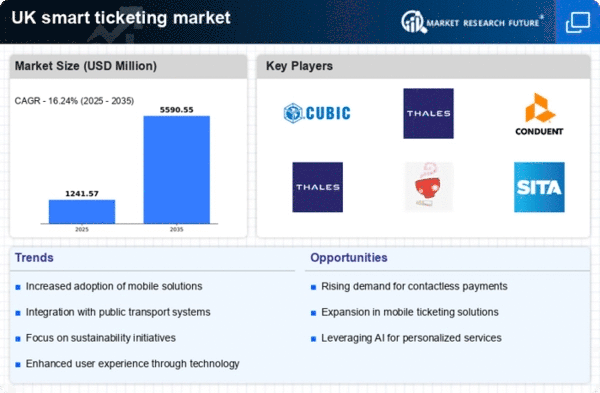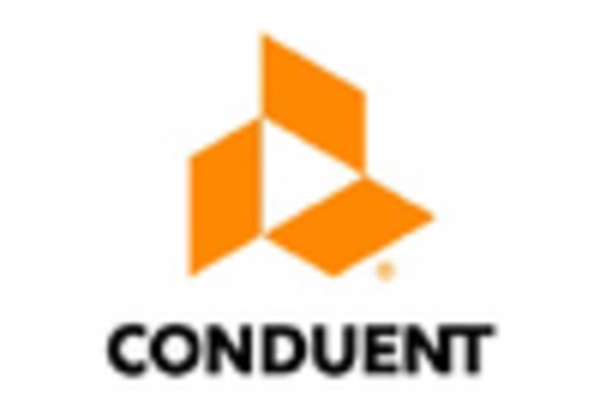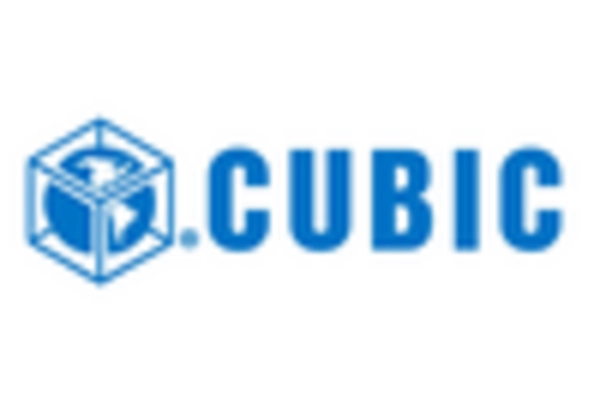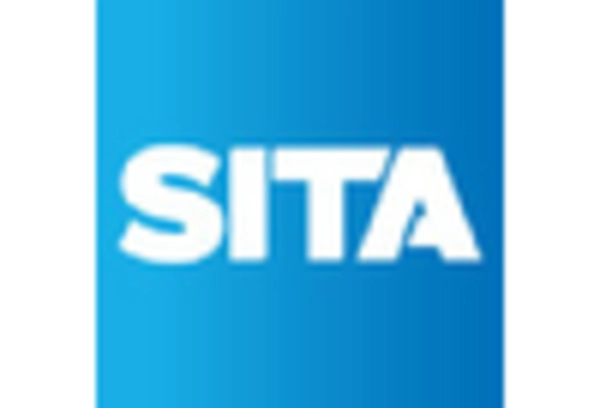Growing Urbanization
The increasing urbanization in the UK is a pivotal driver for the smart ticketing market. As more individuals migrate to urban areas, the demand for efficient public transport systems escalates. This trend necessitates the implementation of smart ticketing solutions that streamline access to various modes of transport. According to recent data, urban areas in the UK are projected to house over 85% of the population by 2030, which could lead to a surge in smart ticketing adoption. The smart ticketing market is likely to benefit from this demographic shift, as local governments and transport authorities seek to enhance user experience and operational efficiency. Furthermore, the integration of smart ticketing systems can alleviate congestion and improve overall transport management, making it a crucial component in urban planning and development.
Technological Advancements
Technological advancements are a crucial driver for the smart ticketing market, as innovations in mobile technology, data analytics, and payment systems continue to evolve. The proliferation of smartphones and contactless payment methods has transformed how consumers interact with transport services. In the UK, it is estimated that over 80% of adults own a smartphone, which facilitates the adoption of mobile ticketing solutions. The smart ticketing market is likely to benefit from these technological trends, as they enable more efficient ticketing processes and enhance user engagement. Furthermore, advancements in data analytics allow transport operators to gain insights into consumer behavior, leading to improved service offerings and operational efficiencies. As technology continues to advance, the smart ticketing market is expected to expand, driven by the need for innovative solutions that meet the demands of modern commuters.
Consumer Demand for Convenience
The evolving consumer preferences towards convenience and seamless travel experiences are propelling the smart ticketing market. As individuals increasingly seek hassle-free travel options, the demand for smart ticketing solutions that offer quick access and easy payment methods rises. Recent surveys indicate that approximately 70% of UK commuters prefer digital ticketing options over traditional paper tickets. This shift in consumer behavior is prompting transport operators to adopt smart ticketing systems that cater to these preferences. The smart ticketing market is thus positioned to thrive as it aligns with the growing expectation for user-friendly and efficient travel solutions. Moreover, the integration of mobile applications and contactless payment methods enhances the overall travel experience, making smart ticketing an attractive option for both consumers and transport providers.
Government Initiatives and Funding
Government initiatives aimed at modernizing transport infrastructure are significantly influencing the smart ticketing market. The UK government has allocated substantial funding to enhance public transport systems, with a focus on digital transformation. Recent reports indicate that over £500 million has been earmarked for smart transport projects, which include the development of smart ticketing solutions. These initiatives not only aim to improve user convenience but also to promote sustainable transport options. The smart ticketing market stands to gain from these investments, as they facilitate the deployment of advanced technologies that enhance ticketing processes. Additionally, government support fosters collaboration between public and private sectors, driving innovation and expanding the reach of smart ticketing solutions across various transport networks.
Focus on Integration Across Transport Modes
The emphasis on integrating various transport modes is a significant driver for the smart ticketing market. In the UK, there is a growing recognition of the need for seamless travel experiences that connect buses, trains, and other forms of transport. This integration is essential for enhancing the efficiency of public transport systems and improving user satisfaction. Recent initiatives have been launched to create unified ticketing systems that allow passengers to use a single ticket across multiple transport modes. The smart ticketing market is poised to benefit from this trend, as it encourages the development of interoperable ticketing solutions that simplify the travel process. By fostering collaboration among different transport operators, the smart ticketing market can enhance connectivity and accessibility, ultimately leading to a more integrated and user-friendly transport network.
















